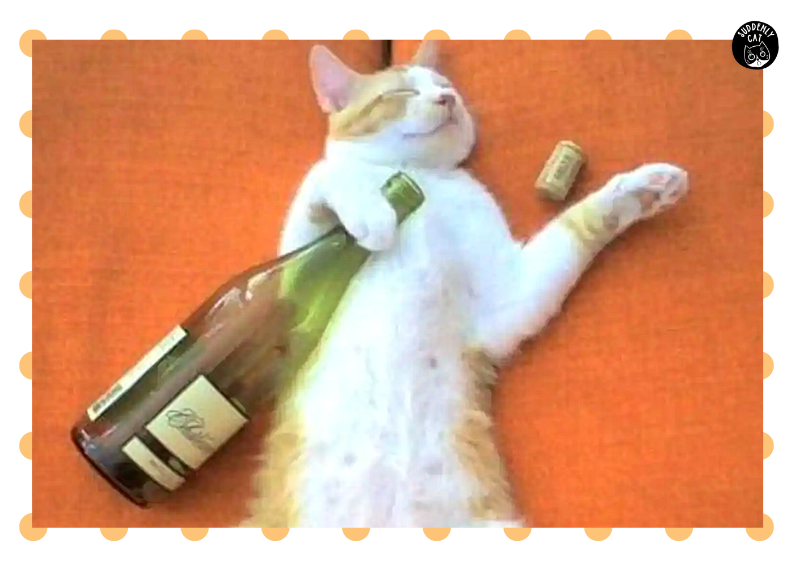
10 Common Foods That Are Actually Dangerous For Cats
Cats can be fussy eaters. They may be highly selective eaters but as cat owners, we have to be aware and responsible for what we feed our cats. Some owners have the usual case of their cat waiting earnestly near the dinner table for their humans to share their dinner. As cute and tempting as this may be, it is still better to check before unintentionally poisoning the cat. Let’s take a look at common food items that are actually dangerous for your pet cat.
.
.
.
Here’s a list of 10 common foods found at home that are actually toxic to cats:
–
1. Grapes & Raisins
They may be bite-sized but it’s not a good idea to use them as treats. Although it isn’t clear which exact component in grapes is toxic, grapes are known to cause kidney failure in cats. A small amount can make a cat vomit. Best to keep them off the countertops and tables!
–
2. Chocolates
Chocolates and cats may be a ladies’ favourite. Do not coax your kitties to eat those chocolates as a treat! Theobromine, found in ALL TYPES of chocolates are lethal for cats. Cats eating chocolates can cause abnormal heart rate, tremors, seizures and even death. Cats don’t really miss out on the heavenly goodness of chocolates, because they can’t taste sweetness anyway.
–
3. Coffee and Tea
Theobromine, as mentioned in the previous point, is also found in anything that contains caffeine like coffee and tea. Symptoms of caffeine poisoning include restlessness, rapid breathing, abnormal racing of the heartbeat, muscle tremors, and fits. In addition to tea and coffee — including beans and grounds — caffeine can be found in cocoa, chocolate, colas, and stimulant drinks such as Red Bull.
–
4. Alcohol

Alcohol has the same effect on a cat’s liver and brain that it has on humans. Alcohol poisoning can cause coma and even death to cats. Avoid feeding all foods that contain alcohol!
–
5. Yeast Dough
Bread dough during baking is usually left to rest as a process called proofing, which is the rising from the yeast fermentation before you bake it. So when a cat eats it, it will do the same in its little stomach. As the dough swells, it stretches the stomach and causes severe pain. As the yeast ferments, it also produces alcohol, which can lead to alcohol poisoning as mentioned just above!
–
6. Onions, Garlics and Chives
Onion in all forms – powdered, raw, cooked, or dehydrated, can break down a cat’s red blood cells, leading to Anaemia. Some baby foods do contain onion powder. A tiny dose of onion probably won’t hurt but eating a large quantity can cause onion poisoning. Along with onions, garlic and chives can cause gastrointestinal upset.
–
7. Avocado

Avocado contains Persin and it can cause vomiting and diarrhoea to dogs and cats. It is also important to note that Persin poisoning is even more severe for pet birds, where death may occur.
–
8. Milk, cheese and other dairy products
As opposed to cartoons showing cats drinking milk, most cats are actually lactose intolerant. Their digestive system cannot process dairy foods and the result is a tummy upset with diarrhoea. Therefore, no cat, you cannot haz cheeseburger 🙁 Fancy a cat burger bed instead?
–
9. Aloe Vera

Aloe vera, a common house plant with lots of medicinal and healing uses for humans, contains Anthraquinone Glycosides, which encourages bowel movements. When eaten by cats, it can cause vomiting, diarrhoea. Other reported side effects are depression, anorexia, changes in urine colour and rarely, tremors. Here’s a longer list of other plants that are poisonous to cats.
–
10. Candy
Xylitol is a diabetic sweetener found in most sweet foods and fruits. Xylitol can cause an increase in the insulin circulating through your cat’s body, which will cause the cat’s blood sugar to drop. Xylitol can also lead to liver failure. Initial symptoms include vomiting, lethargy, and loss of coordination. The cat may have seizures, liver failure, coma and even death. AND again, cats can’t taste sweetness. They ain’t missin’ out on anythin’
.
.
.
What to do if your cat eats something it shouldn’t have?
It is handy to keep your vocal vet’s number on the fridge door (like we do) or someplace easy to find for an emergency. Call for emergency help if you think your cat has eaten something toxic.
Random Cat Fact #518: Taurine is an important nutrient for cats, and not usually found in human’s foods. A lack of Taurine in a cat’s diet may lead to blindness, tooth decay and heart failure. For this reason, cat foods are supplemented with Taurine to avoid Taurine deficiency.
– – –
Was this article useful? You should definitely read about our detailed list of hooman foods that are safe and dangerous for cats.
